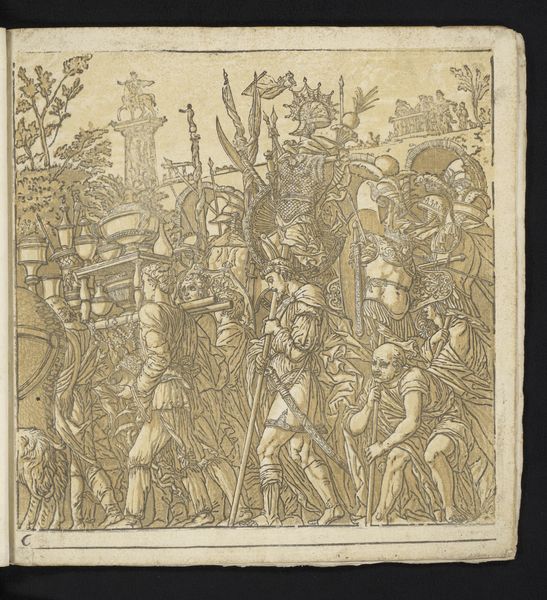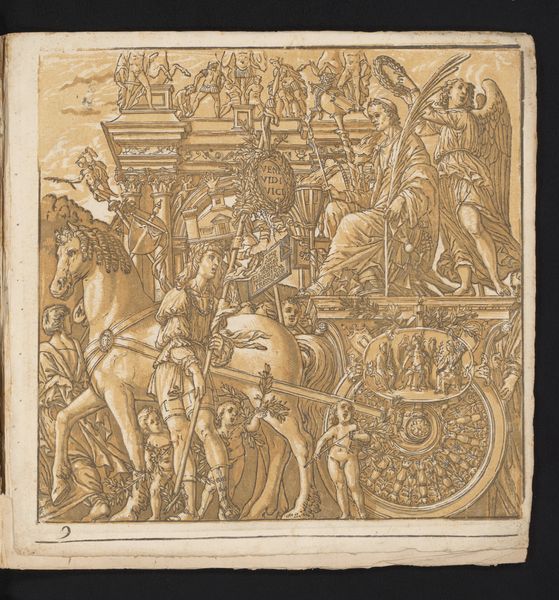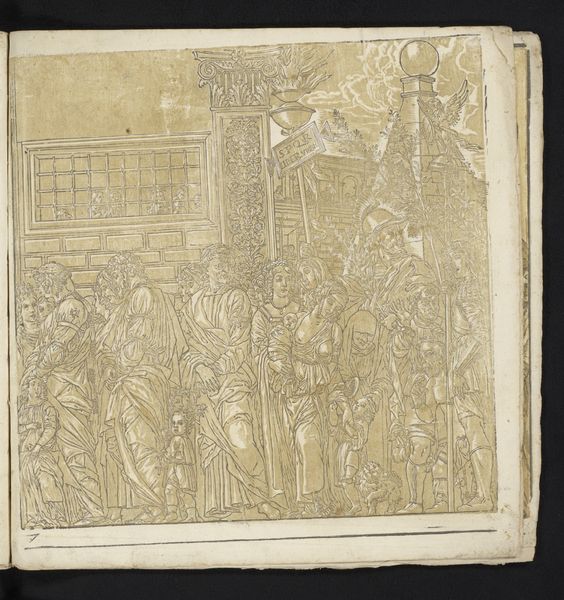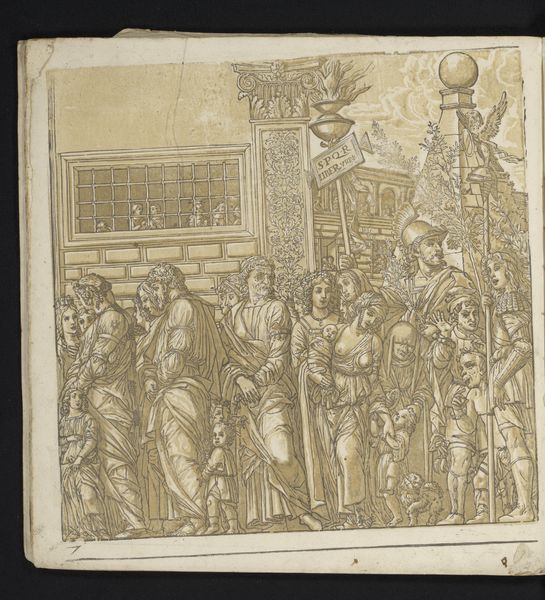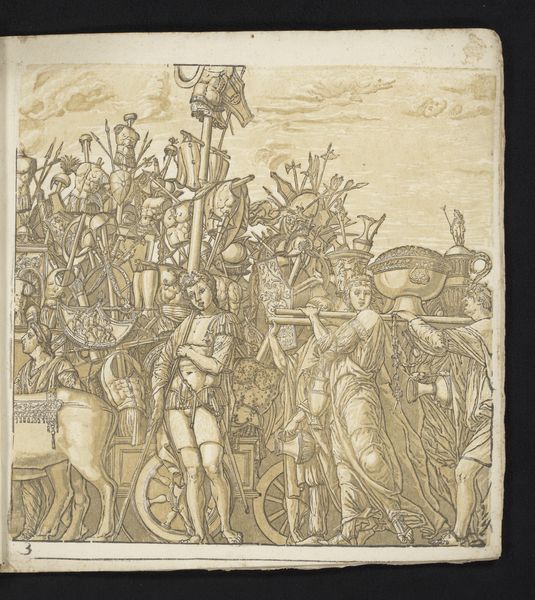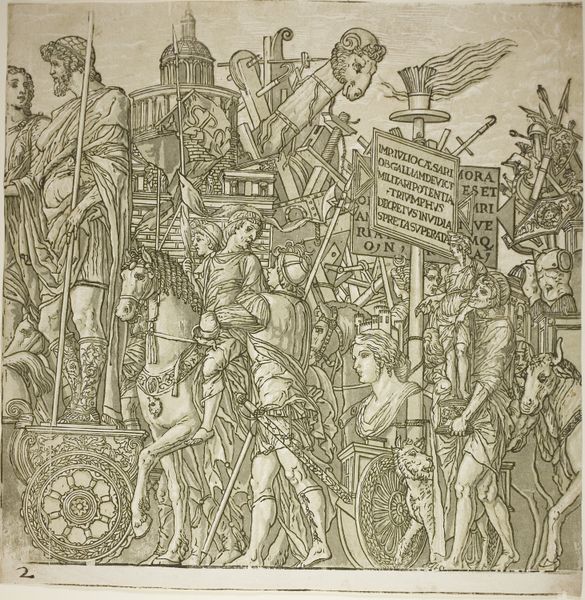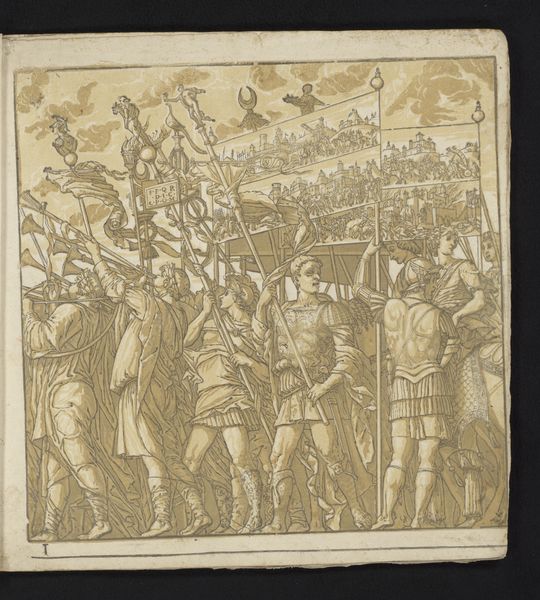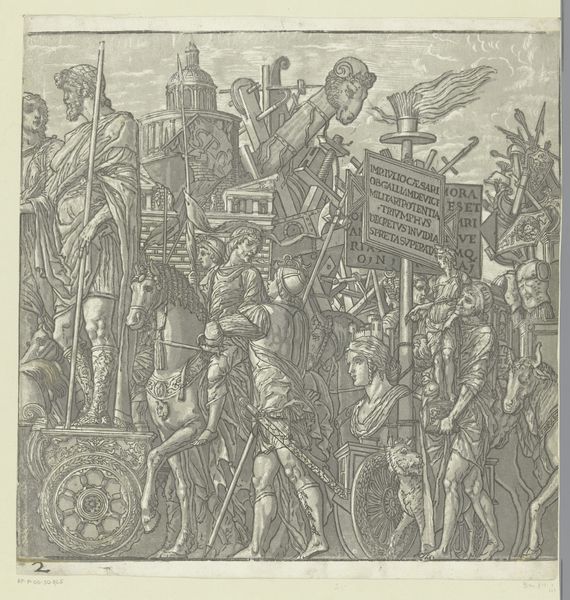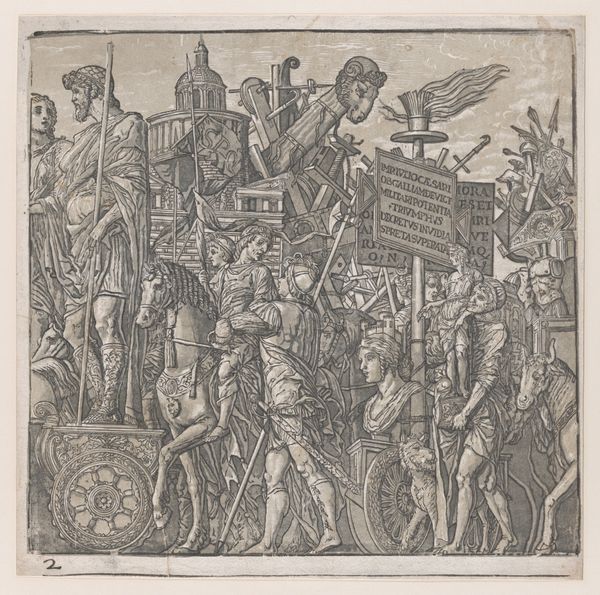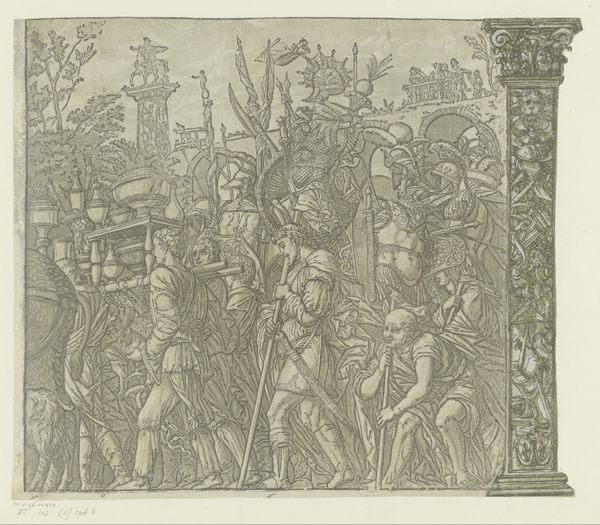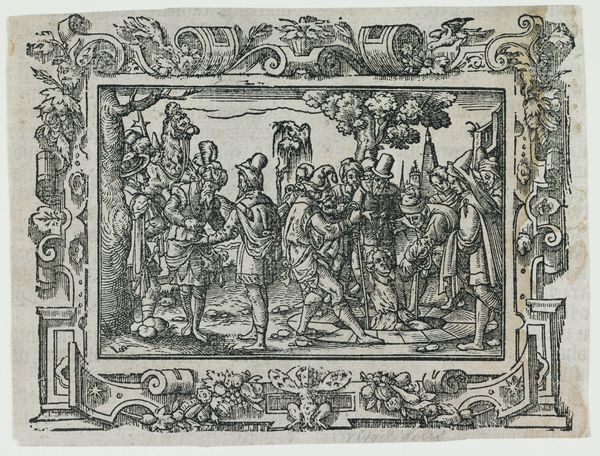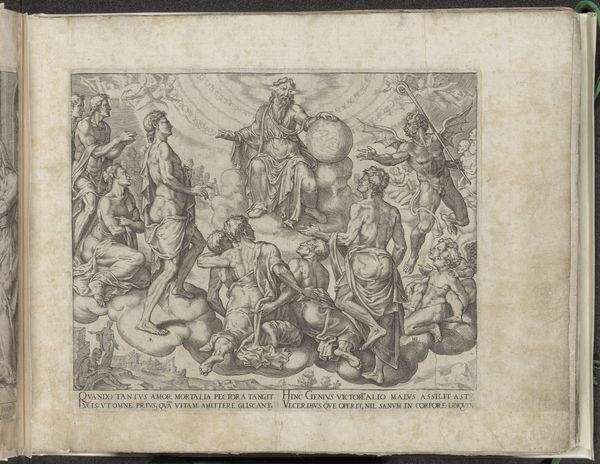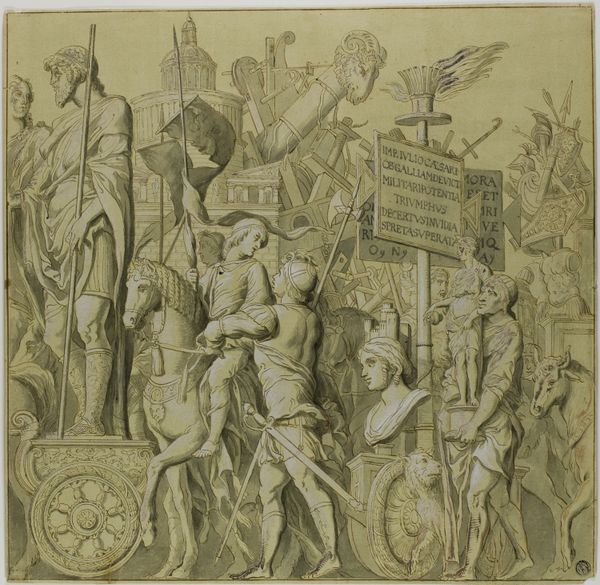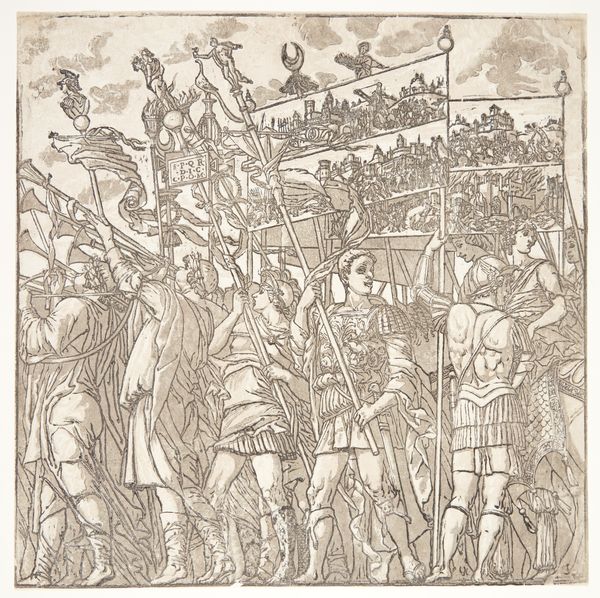
print, engraving
#
portrait
#
allegory
# print
#
mannerism
#
figuration
#
line
#
history-painting
#
italian-renaissance
#
engraving
Dimensions: height 415 mm, width 400 mm
Copyright: Rijks Museum: Open Domain
Andrea Andreani made this woodcut, "The Triumph of Julius Caesar," probably in Italy, sometime around 1600. Woodcuts like this one played a crucial role in shaping public perceptions of history and power. The image evokes the grandeur of ancient Rome through its detailed depiction of a triumphal procession, but it also reflects the political and cultural climate of the artist’s time. Italy, during this time, was composed of city-states that often used art to legitimize their authority by connecting themselves to the legacy of Rome. By studying the visual language and symbols employed in this artwork, we can understand the image as a visual tool with a political role. Research into the historical context and cultural associations of the time help us to understand better how these images worked as forms of visual communication. It also illustrates the social conditions that shape artistic production.
Comments
No comments
Be the first to comment and join the conversation on the ultimate creative platform.
